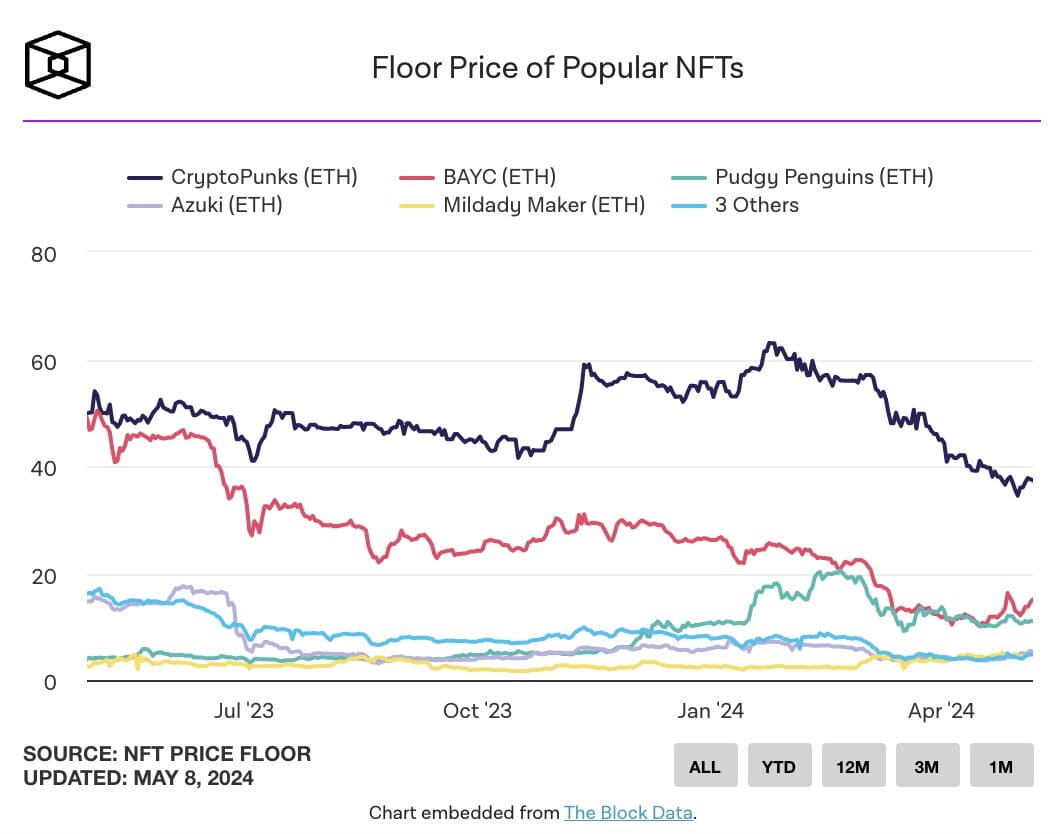ZachXBT, a crypto investigator, noticed what happened first. It seems the Bored Ape owner got tricked by a phishing attack, based on what investigators found. Also, the wallet connected to this incident was in other phishing scams before. But we still don’t know exactly how this phishing attack happened.
Details of the Phished NFTs
The incident was first reported by crypto investigator ZachXBT. The collector lost NFTs BAYC #7531, BAYC #6736, and BAYC #2100, totaling 54.8505 ETH or $164,400. Further investigation using Etherscan’s blockchain explorer revealed previous involvement of the wallet linked to the BAYC NFT transactions in phishing scams. #2100 at 18 ETH ($54,000), according to OpenSea, a big NFT marketplace.
Each of the phished Bored Ape NFTs possesses distinct traits contributing to their rarity and value. BAYC #7531 boasts the exclusive trait of white fur, a characteristic shared by only 4% of the total 10,000 NFTs. Meanwhile, BAYC #6736 features the “small grin” trait, which is particularly rare, occurring in only 3% of the collection. Lastly, BAYC #2100 exhibits a combination of traits, including Bored Pizza, tie-dye shirt, girl’s short hair, blindfold, gold stud, and pink fur.

Despite the significant value of the phished NFTs, the overall floor prices of the Bored Ape Yacht Club collection have experienced a notable decline in recent months. As of May 8, the floor prices plummeted to 15.09 ETH, as reported by The Block’s Data Dashboard. Nonetheless, the collection still maintained substantial trading volume, amounting to $13.3 million between April 28 and May 5.
Phishing schemes continue to pose a pervasive threat in the digital realm. Employing spoofing techniques, these scams aim to deceive individuals into divulging sensitive information to malicious actors, as emphasized by the United States Federal Bureau of Investigations (FBI).
Impact on the Crypto Community
The crypto community faces serious problems from phishing attacks. Reports show big money losses, with about $300 million gone to crypto phishing attacks in 2023, affecting over 324,000 people. The largest single loss was $24 million. Phishing scammers in the crypto world use different tricks, like taking over project websites or social media accounts, giving out fake token airdrops, and spreading harmful links on social media.
To sum up, the sad event where three rare Bored Ape NFTs were lost reminds us of the constant danger of phishing scams in the digital world. As the crypto community grows, it’s more and more important for people to be careful and use strong security to protect their assets from these bad activities.
 Bitcoin
Bitcoin  Ethereum
Ethereum  Tether
Tether  XRP
XRP  USDC
USDC  TRON
TRON  Lido Staked Ether
Lido Staked Ether  Dogecoin
Dogecoin  Figure Heloc
Figure Heloc  Cardano
Cardano  WhiteBIT Coin
WhiteBIT Coin  Bitcoin Cash
Bitcoin Cash  Wrapped stETH
Wrapped stETH  Wrapped Bitcoin
Wrapped Bitcoin  USDS
USDS  Wrapped eETH
Wrapped eETH  Binance Bridged USDT (BNB Smart Chain)
Binance Bridged USDT (BNB Smart Chain)  Chainlink
Chainlink  Monero
Monero  LEO Token
LEO Token  WETH
WETH  Zcash
Zcash  Stellar
Stellar  Hyperliquid
Hyperliquid  Coinbase Wrapped BTC
Coinbase Wrapped BTC  Ethena USDe
Ethena USDe  Litecoin
Litecoin  Sui
Sui  Avalanche
Avalanche  Hedera
Hedera  sUSDS
sUSDS  Shiba Inu
Shiba Inu  USDT0
USDT0  Dai
Dai  Canton
Canton  Uniswap
Uniswap  PayPal USD
PayPal USD  Mantle
Mantle  Cronos
Cronos  Toncoin
Toncoin  World Liberty Financial
World Liberty Financial  Ethena Staked USDe
Ethena Staked USDe  Polkadot
Polkadot  USD1
USD1  Aave
Aave  Rain
Rain  Bitget Token
Bitget Token  MemeCore
MemeCore 

